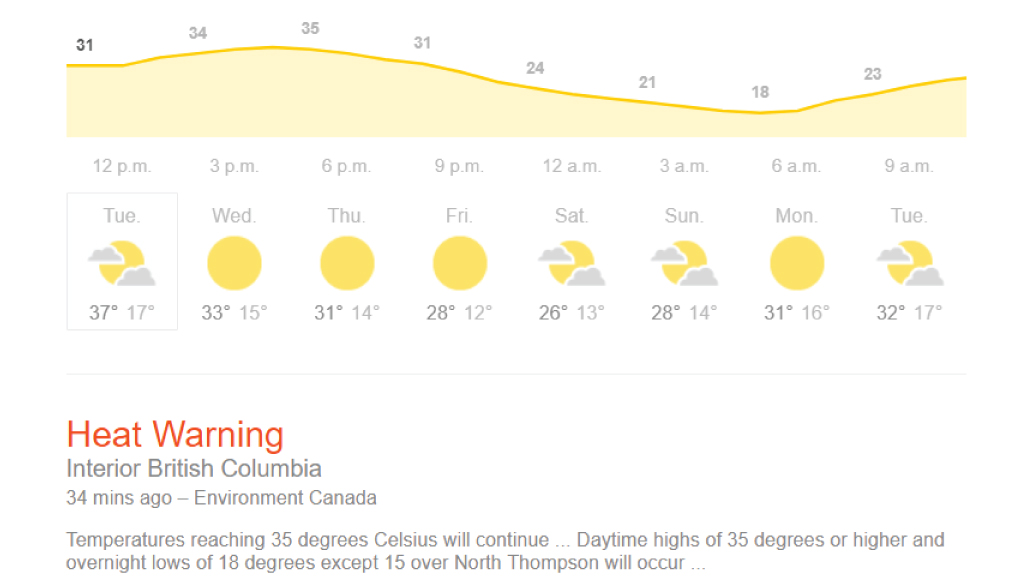As temperatures in B.C. continue to soar—from mid to high 30s in some areas—it’s important to watch over the most vulnerable among us. Scorching temperatures have triggered health advisories and warnings about keeping seniors cool in hot weather.
Extreme heat can have dire consequences for older adults. They are at a greater risk for overheating and heat stroke because their bodies can’t adapt to sudden temperature changes quickly enough.
Seniors can be less sensitive to these changes, and might not even realize that they’re overheating. If you know of a senior who is a friend, family member or neighbour, take a moment to check on them during these days of rising temperatures.
What is a heat stroke?
A heat stroke is caused when the body overheats to 104°F or higher. It’s a serious medical condition that requires emergency attention.
If left untreated, a heat stroke can cause damage to the brain, heart and kidneys. Not seeking medical attention increases the risk for severe complications or death.
Taking some precautions can reduce the risk of overheating and heat stroke among seniors.
Take note of the older adult’s health conditions and medications.
Some prescription medications can impair an older adult’s ability to regulate temperature.
Check with their doctor to find out if medications they’re taking could affect their body’s ability to regulate temperature.
Identify heatstroke symptoms for immediate treatment.
Watch out for symptoms of overheating like dizziness, extreme thirst, headache, nausea, cramps and muscle spasms, fatigue, and cold clammy skin. Overheating is different from a heatstroke—it is caused by a loss of water and salts through sweating. It’s not very dangerous on its own, but can quickly lead to heatstroke.
Symptoms of heat stroke include body temperature of 104°F or higher, inflamed skin without sweating, a rapid pulse, headache, nausea, dizziness and unconsciousness.
Minimize sun exposure.
Stay in to stay cool. If it’s warm and humid outside stay indoors in a cool, air-conditioned environment. Keep your home cool by blocking out sun and heat with blinds/solar curtains, and keep windows open at night.
Dress appropriately.
Wear light-coloured clothing made of natural, breathable fabrics like cotton. Hats and scarves should be used to protect against sun exposure when going outside.
Stay hydrated.
Increase their intake of water, fruit and vegetable juices, and other hydrating fluids. Avoid caffeine and alcohol to prevent dehydration.
Avoid exercising in the heat.
Exercise indoors on warm days. Seniors should stay active, but avoid overexerting themselves.
Get emergency help immediately.
If you find someone exhibiting signs of a heatstroke, call 9-1-1 immediately. If possible, move them indoors to a cool area and douse them with water. You could also place them in a cold bath or shower. Do what you can to keep the patient cool until help arrives.





